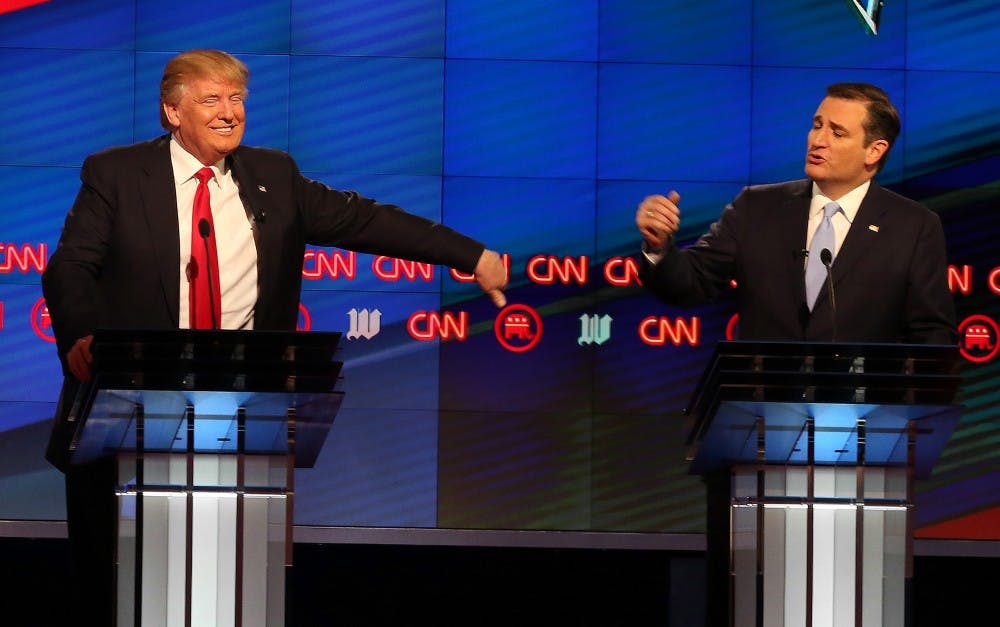GOP candidates require 1,237 delegate votes to win the national convention, and right now Donald Trump is in the lead, trailed closely by Sen. Ted Cruz (R-Texas). If Trump fails to reach the majority number to secure his nomination before the July convention, there’s a possible opportunity for delegates to vote for another nominee on the floor, prompting a contested convention. With the 2016 GOP convention just three months away, Trump, Cruz and Kasich are candidates to watch out for.
What is a contested convention?
U.S. politics allows for something known as a contested convention, which Republican presidential candidate John Kasich is hoping to use to secure his party’s nomination. Closely related to what is known as a brokered convention, a contested convention begins when no single party candidate has the majority delegate votes to get the nomination to the party’s national convention. It can also happen if a candidate doesn’t have the majority delegates but refuses to give up before the convention. The only instance of this happening was in 1980 — Ted Kennedy gave it one last try to win against President Jimmy Carter in the Democratic nomination.
The tricky thing about contested conventions is that the political party runs them, not government entities, so the rules can change. Kennedy tried to change the rules so that delegates could vote for whomever they wanted on the floor, so that he would have a chance to pull ahead. If the GOP were to hold a contested convention in 2016, Cruz and Trump would go head to head for the nomination.
What will the National Convention be like for Trump and Cruz?
Ninety-five percent of the GOP delegates will be “bound” to a specific candidate when they arrive in Cleveland for the convention, or will be required by their state party to vote for the candidate they were assigned to as a result of their state’s primary or caucus. If no candidate wins a majority, a lot of those delegates that make up the 95 percent will be able to vote however they chose on the floor and become what are called “free agents.”
With more free agents comes more chaos. More delegates can change their minds, so the voting numbers and delegate trackers people have watched in the media will be completely thrown off. This means there could be excessive rounds of voting, or as many rounds as it takes to select a nominee.
In 1924, it took the Democratic party 103 ballots to nominate John W. Davis — and, as evident by that election, he was not elected president. Typically, candidates who win the party nomination but come in as the unfavored candidate do not win the presidency.
Currently, Trump is still favored to win. But because many states bind their delegates to a candidate, opening up the convention floor to more delegate votes could sway the numbers significantly.


